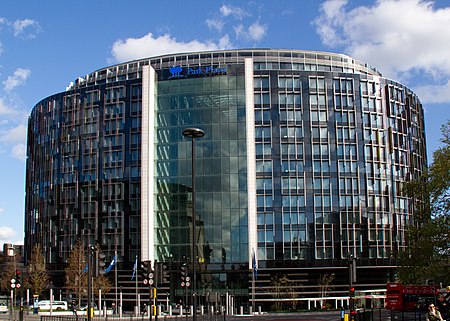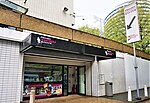Park Plaza Westminster Bridge
Buildings and structures in the London Borough of LambethHotel buildings completed in 2010Hotels established in 2010Hotels in LondonLondon building and structure stubs ... and 3 more
PPHE Hotel Group hotelsPark Plaza Hotels & ResortsUnited Kingdom hotel stubs

The Park Plaza Westminster Bridge is a hotel at 200 Westminster Bridge Road in London with 1,019 bedrooms.It was designed by BUJ architects, Uri Blumenthal architects and Digital Space, and was built on the site of the County Hall Island Block, an annex of London County Hall, that was demolished in 2006. The building, also known as No 1 Westminster Bridge Road, had been disused since 1986 and had become derelict, being described by the BBC as "one of London's most hated eyesores".The hotel opened on 1 March 2010 and cost £300 million. It is part of the PPHE Hotel Group.
Excerpt from the Wikipedia article Park Plaza Westminster Bridge (License: CC BY-SA 3.0, Authors, Images).Park Plaza Westminster Bridge
Westminster Bridge Road, London Lambeth (London Borough of Lambeth)
Geographical coordinates (GPS) Address External links Nearby Places Show on map
Geographical coordinates (GPS)
| Latitude | Longitude |
|---|---|
| N 51.5009 ° | E -0.1166 ° |
Address
Park Plaza Westminster Bridge
Westminster Bridge Road 200
SE1 7UT London, Lambeth (London Borough of Lambeth)
England, United Kingdom
Open on Google Maps









